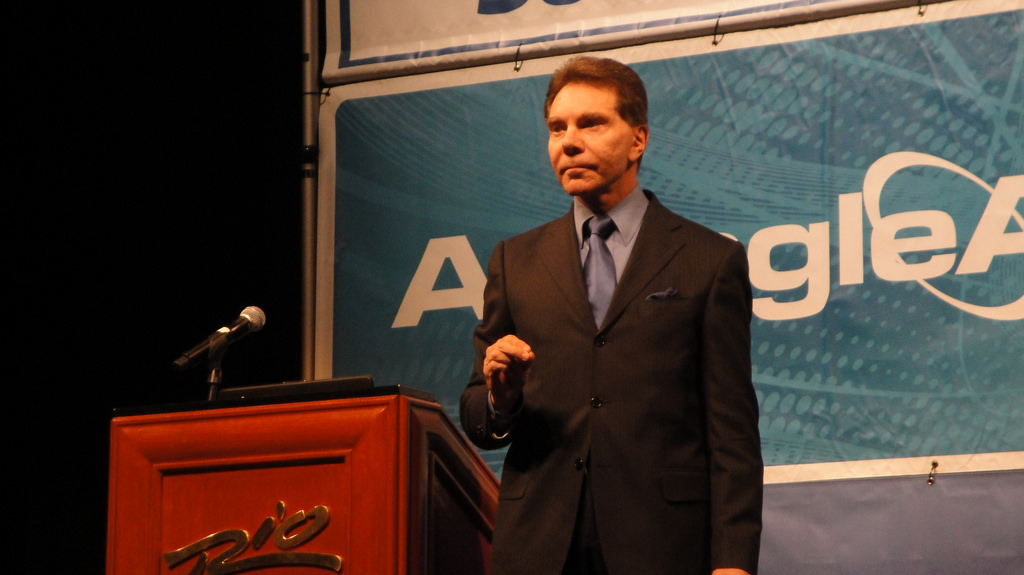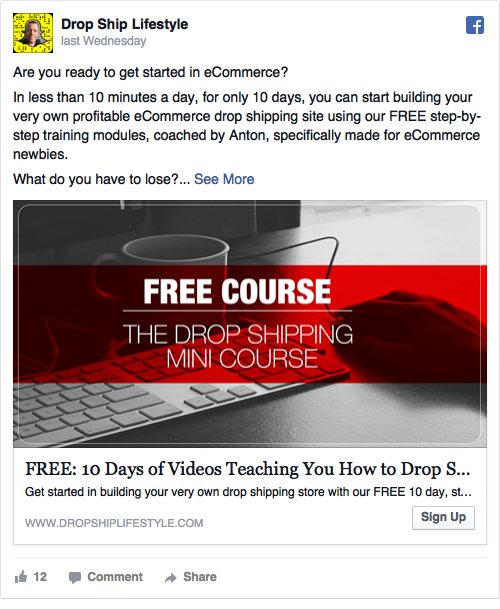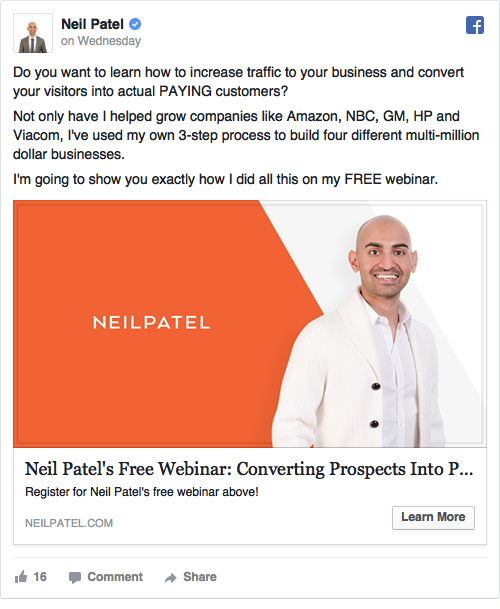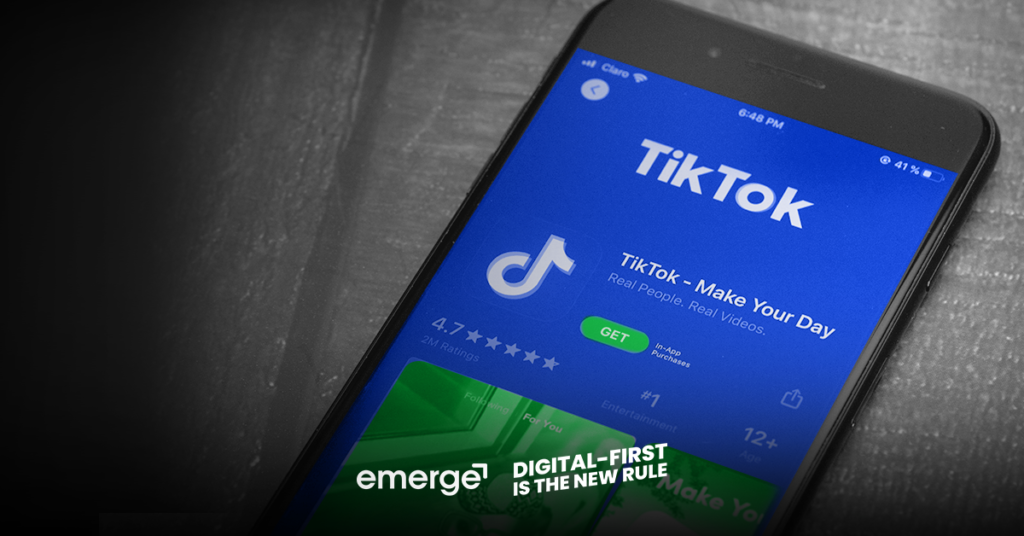
Did you know that you can use principles of persuasion in Facebook Advertising?
There’s no magic involved, but actually scientific knowledge. Based on the book called “Influence: The Psychology of Persuasion” written by Dr. Robert Cialdini, the decision of an individual can be influenced by these six principles which were reciprocity, commitment/consistency, social proof, authority, liking and scarcity.
Before I go through each principles of persuasion, let me give you a brief background of Dr. Robert Cialdini.

Dr. Robert Cialdini is a marketing and sales persuasion expert.
Some call him “The Godfather of Persuasion” due to his involvement in extensive research and scholarly training in the study of psychology of influence.
He is best known for his popular book on principles of persuasion and marketing, Influence: The Psychology of Persuasion.
The main objective when implementing these principles in your Facebook Ads is to achieve your marketing goals which can be the following:
- Get more sales
- Increase newsletters subscriptions
- Drive more visits to your website
- Get more app downloads
In this article, I’ll elaborate on each of these principles and show you how other businesses are applying them in their Facebook Ads.
If you’re a marketer, social media manager, or simply want to make your project work better, be sure to read these 6 principles of persuasion:
Applying the Principles of Persuasion to Facebook Ads
1. Reciprocity
When was the last time you pay back someone because you feel a sense of indebtedness?
Social norms compel us to respond to a favor with another favor, in order to not be considered ungrateful.
Based on the idea of reciprocity, marketers often use this principle by offering “free samples” or “discounts” to others if they’ve received favors from those others.
It is important to understand that the principle of Reciprocity is only applied if you’ve already given value to someone before you ask for something in return.
Though this principle is very popular, you can still make it more effective by using these three factors:
Principle of Reciprocity: Example of Execution

For example, Drop Ship Lifestyle offers FREE step-by-step training modules to their target audience which are eCommerce newbies.
These modules are offered WITHOUT asking for anything in return (and if they do, it’s only communicated as a method of delivering that modules to them).
Don’t get confused with the ads you see that offer something, like a bonus, in return of buying something.
They’re not giving the value first hand which is the actually the essence of reciprocity.
2. Commitment and Consistency
Quoting Cialdini,
Once we have made a choice or taken a stand, we will encounter personal and interpersonal pressures to behave consistently with that commitment. Those pressures will cause us to respond in ways that justify our earlier decision.
In this principle, retargeting is very important because of these two reasons:
- You want to stay top of the mind of your target audience
- Customers trust you because they’ve accepted your previous offer
A good marketer knows how to influence the buyer by offering a lead magnet and tripwire before the premium offer comes in.
Principle of Commitment and Consistency: Example of Execution

For example, the ad of ISCAHM is retargeted at website visitors who did not sign up for their course.
In our experience here in Emerge, retargeting website visitors who were going to purchase the product earlier but did not do for some reason is highly effective in generating sales or achieving the marketing goal.
3. Social Proof
Imagine, you’re shopping for a hair care product and there are two brands in front of you.
One is endorsed by celebrities and has rave reviews online why the other is barely new in the market.
Which should you use?
The answer is obvious.
In the principle of social proof, the decision is based on the rate of collective approval.
I will explain more of this later. In addition, Dr. Robert Cialdini defines social proof as,
It’s a principle of persuasion. It says the people want to follow the lead of those individuals around them, like them so in any given situation will look to see what the people around us like us our doing and follow soon.
Principle of Social Proof: Example of Execution

In the example above, HubSpot mentioned “500,000+ fellow marketers” in the Ad’s body copy to show that others are already subscribed to their newsletter.
The 500,000 fellow marketers is an example of collective approval which I’ve mentioned before.
It’s not only the decision of ONE but MORE which gives high impact to a person.
Furthermore, Cialdini’s principle of social proof works great when you include testimonials because you can have a grasp of the what a product and service can do to you as a customer.
4. Liking
Now let’s proceed with principle of liking. Cialdini said,
We’re more likely to be influenced by the people who we like.
In social situations, if you like someone, you’re more likely to do something they want or ask.
That’s why we have what we call fans.
And if the people you like including your relatives, friends, families liked a product or service, tell you that it’s awesome, you will immediately trust them.
That’s what you call word-of-mouth recommendations.
This principle can be applied to your Facebook Ads in the following way – use an object or person who your audience likes and promote your product in association with it.
Let’s take a look at the example below.
Principle of Liking: Example of Execution

In the ad above, Sunsilk, one of the leading hair expert companies in the world, associate their new product to a well-known celebrity.
If you are an avid fan or you simply like the celebrity, you’re going to like the product too.
5. Authority
It’s human nature that people follow who look like they know what they’re doing.
They are the authority figures. Authority is not just based in the positions of power or experience.
It can be superficial too. For example, clothing is one factor that help you perceive authority.
If you dress like a boss, you’ll get respect from others.
To illustrate the principle of authority, check out the examples below.
Principle of Authority: Example of Execution

In the ad above, Neil Patel, a famous online marketer and an authority figure in an internet marketing advertises his FREE webinar.
Let’s take another example.
In the ad example above, Leading Social featured Gary Vaynerchuk in one of their events.
Gary Vaynerchuk walk the talk that’s why he has a huge social media followers.
His approach is no BS. By featuring authority figures, Neil Patel and Leading Social apply the principle of authority to achieve their marketing goals.
6. Scarcity
Do you agree that scarcity creates urgency.
Scarcity is one of the most popular principles that companies are using over and over again in order to generate sales.
Scarcity is defined as the perception of products seeming to become more attractive when their perceived availability is rather limited. Quoting Cialdini,
Scarcity (whether actual or merely perceived) generates demand and thus compels customers to act quickly.
In this case, by incorporating “limited time offers”, “act fast, only 2 tickets left”, “hurry!
Limited slots only” and the inclusion of expiration dates on vouchers and coupon codes are ways to apply the principle of Scarcity.
To illustrate this principle, check out the example below.
Principle of Scarcity: Example of Execution

In the ad example above, the phrase “until March 31, 2016” implies high demand and urgency, which then creates the illusion of scarcity.
Conclusion
These 6 Principles of Persuasion have been used for decades by businesses and marketers to, all to get you, the consumer, to take a slice of your hard-earned money.
The goal of the business is to always generate sales which is equivalent to money.
So I hope these principles will help you achieve that.
Think about them and apply them properly.
Don’t be afraid to include testimonials, get endorsed by a celebrity, offer free samples or discounts, or tell your customers that if they don’t act fast, prices might change.
Try to apply these principles to your Facebook Ads one at a time to find out what works for you.
Your Turn
Do you have any other examples of Cialdini’s six principles being used? Share them in the comments section!






